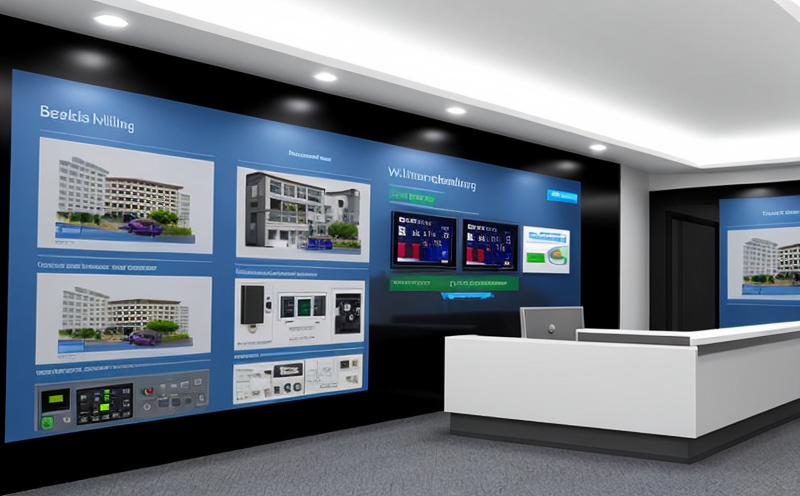EN 15232-6 Automation System Functional Benchmarking
The EN 15232 series of standards provides a comprehensive framework for the design, testing, and certification of automation systems in various sectors. Specifically, EN 15232-6 focuses on functional benchmarking of automation systems, ensuring they meet specified performance criteria to support smart building and infrastructure projects.
Functional benchmarking is critical for verifying that an automation system can operate efficiently under defined conditions. This process evaluates the system's ability to integrate with other components, respond to inputs accurately, and maintain stability over time. The standard covers a wide range of scenarios including power management, climate control, security systems, and energy monitoring.
For buildings and infrastructure projects, this benchmarking ensures that automation systems are not only compliant with local regulations but also optimized for efficiency and performance. Compliance with EN 15232-6 is essential for quality managers and compliance officers to ensure their projects meet international standards set by the European Committee for Standardization (CEN).
The benchmarking process involves several key steps, including system characterization, environmental setup, test procedure definition, execution of tests, and evaluation. Each step is meticulously documented in accordance with ISO/IEC 17025 to ensure reliability and repeatability.
Environmental setups typically include controlled temperature, humidity levels, and power supply conditions that simulate real-world scenarios. Specimen preparation involves configuring the automation system according to project specifications before conducting functional tests. The test procedures encompass a series of predefined inputs designed to stress different parts of the system while monitoring outputs for accuracy and response time.
Instrumentation plays a crucial role in this process, utilizing advanced sensors and data acquisition systems capable of capturing detailed performance metrics. These instruments must adhere strictly to EN 15232-6 specifications regarding measurement precision and repeatability. Reporting follows strict formats outlined by the standard, detailing findings from each test run alongside recommendations for improvement where necessary.
By adhering to these stringent requirements, organizations can ensure their automation systems are not only compliant but also optimized for efficient operation within smart buildings and infrastructure projects. This approach enhances overall project quality while contributing positively towards sustainable development goals.
Eurolab Advantages
Eurolab offers unparalleled expertise in EN 15232-6 compliance through its experienced team of engineers, advanced facilities, and commitment to excellence. Our state-of-the-art laboratories provide the ideal environment for conducting thorough functional benchmarking according to the latest industry standards.
- Comprehensive Testing Capabilities: We offer a full suite of testing services tailored specifically for EN 15232-6 compliance, ensuring comprehensive coverage across all relevant areas.
- ISO/IEC 17025 Accreditation: Our labs maintain strict adherence to international laboratory accreditation standards, guaranteeing the highest level of reliability and accuracy in our testing processes.
- Advanced Instrumentation: Utilizing cutting-edge technology allows us to achieve precise measurements essential for meeting EN 15232-6 requirements accurately.
- Expertise & Experience: Our skilled engineers possess deep knowledge and extensive experience in this field, enabling them to provide valuable insights throughout the benchmarking process.
The combination of these factors makes Eurolab your trusted partner for achieving EN 15232-6 compliance efficiently and effectively. With us, you can rest assured knowing every aspect of your project is being handled by professionals dedicated to excellence in building & infrastructure testing.
Customer Impact and Satisfaction
- Informed Decision-Making: By providing detailed reports based on EN 15232-6 benchmarks, customers gain valuable insight into the performance of their automation systems, allowing for informed decisions regarding upgrades or maintenance.
- Cost Savings: Ensuring early identification and rectification of any issues through rigorous benchmarking helps prevent costly downtime later in a project lifecycle.
- Enhanced Reputation: Compliance with international standards such as EN 15232-6 enhances the reputation of both companies offering these services and those benefiting from them, particularly within competitive markets like smart buildings.
- Regulatory Assurance: Meeting stringent regulatory requirements boosts confidence among stakeholders regarding the safety and efficacy of constructed facilities.
These benefits contribute significantly to customer satisfaction by delivering reliable results that meet or exceed expectations set forth by industry best practices. At Eurolab, our mission is to help clients achieve these goals while maintaining high standards for quality assurance.
Use Cases and Application Examples
| Application Example | Description of Use Case |
|---|---|
| Smart Building HVAC Systems | Benchmarking ensures efficient operation under varying environmental conditions, leading to reduced energy consumption and improved occupant comfort. |
| Security Automation Integration | Evaluates the reliability of integrated security systems during critical events like power outages or unauthorized access attempts. |
| Smart Grid Infrastructure | Verifies seamless interaction between different components within a smart grid, enhancing overall stability and performance. |
| Sustainable Building Projects | Promotes green building practices by ensuring automation systems contribute positively to environmental sustainability targets. |
These real-world applications demonstrate how EN 15232-6 benchmarking contributes directly to the success of various smart building and infrastructure projects. By rigorously testing each component against specified criteria, we help ensure that automation systems perform optimally across diverse environments.





